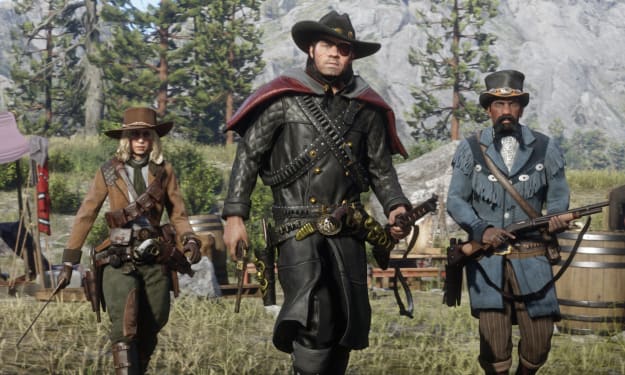Manchester: a city written by The Smiths
Let's pretend for a second that Morrissey is not a horrible person

Manchester, so much to answer for, sings Morrissey in ‘Suffer Little Children’, back in the day when the singer didn’t put his fans under constant moral dilemma. The song, featured in the first Smiths’ album released in 1984, talks about the Moors murders that happened in the Greater Manchester area between 1963 and 1965 — and it’s one of many lyrics involving the city.
Though Manchester gave birth to many bands — Buzzcocks, Happy Mondays, Joy Division, The Stone Roses, Oasis just to name a few — none of them evoked the place itself as much as The Smiths did. The quote in ‘Suffer Little Children’ adds, then, another layer of significance: how much does a city influence a band? Or, more specifically, how much did Manchester influence the Smiths?
The finest British drizzle greets me outside Manchester Piccadilly station. If this city was such an important character in The Smiths’ lyrics, it makes sense to explore it so to fully comprehend the songs and find out how much of it stills exists in 2017, in a social media driven, Brexit bound Britain. And in case you are curious, the answer is: a lot.
In his 2013 autobiography, Morrissey describes Manchester as ‘a place where everything remains where it was left 100 years ago’. It is, indeed, one’s very first impression: red bricks, warehouses and other heirlooms of the Industrial Revolution. However, over thirty years separate us from 1982, when Johnny Marr knocked on the door of 384 Kings Road. Like every large city in the UK, Manchester has also acquired its countless franchises of Starbucks and Pret-A-Manger. Many icons of the 80s (and of The Smiths themselves) no longer exist — the Haçienda, for instance, where Morrissey met Linder Sterling (whose inspiration is noted in ‘Still Ill’ and ‘Cemetary Gates’ — yes, they used to go for a stroll at Southern Cemetery), closed its doors in 1997. Other places stand strong, defiant despite the ghost of gentrification: the Ritz, where the band played their first gig (and welcomed Marr back to its stage in 2013); Piccadilly Records still inhabits 53 Oldham Street with windows crowded with Smiths’ memorabilia. And Salford Lads Club, of course, photographed by Stephen Wright (and consequently immortalised) in the sleeve of The Queen Is Dead, released in 1986.
The gentleman club — who is also featured in the video of ‘There Is A Light That Never Goes Out’ — is located in Salford, a Manchester suburb. The building sites of the video have all been finished (gladly!) by now, and the walk towards the club is filled with the domesticity of backyards full of toys and air-drying clothes. And if during the 80s the Smiths’ peregrination was frowned upon, today the lads of Salford have surrendered to the cult with a ‘Smiths Room’, opened in 2004 to welcome group excursions with an appointment (as one will sadly find out showing up unadvised). The front — with its green doors and red bricks — is only an Instagram filter away from 1986. It still doesn’t look like 2017, though.
It is worth noticing that the club is located at the end of Coronation Street — another of Morrissey’s fixations. He actually sent a script for the series (aired since 1960) and one of its actors, Pat Phoenix, models for the cover of ‘Shakespeare’s Sister’. For any Smiths’ fan, the band’s Manchester is still alive, and one could start to understand why they would fill a whole coach — £25 per seat — and drive around for 3 hours. (Or maybe not, but no judgement).
Other landmarks are found strolling down Upper Brook Street, where the Holy Name Church is located (from ‘Vicar In A Tutu’), right into the Rusholme area (‘Rusholme Ruffians’) where beautiful girls would show their affection for Moz (‘Pretty Girls Make Graves’). Even the Strangeways prison (‘Strangeways, Here We Come’) confirms Morrisseys’ beliefs, retold in his autobiography: ‘the prison [in the 70s Manchester] is an eventual reality, and certainly it [the city] will make you a criminal’. The iron bridge (Trafford Road Bridge, to be exact) of ‘Still Ill’ is in Stretford, around Moz’s old house in Kings Road. And even Manchester United gives inspiration for ‘Sweet And Tender Hooligan’ — though Morrissey wanted to go further and use a portrait of George Best for one of his Smiths’ iconic art.
What I mean is: if Manchester is such a present character in the Smiths’ world, Moz is the one to blame. Responsible for the band’s lyrics and artwork, this overdose of Mancunian references is maybe due to the singer’s pride (half sadistic, half civic) for the city — or at least it could have been, before he left for sunnier lands and revolting statements. In the late 80s, his portrayal of Manchester is never completely romantic, but acid and ironic instead — peculiarities of Morrissey’s personality themselves, and maybe just so because he was born and raised in Manchester. And that is not to say, of course, that any of his current babbling is related to anything but the fact he — despite being one of the greatest songwriters of the late 80s — is just not the a very nice person. Had his autobiography come out four years later, I would probably not have been bothered to buy it, let alone research and explore the city and the lyrics of one of my all time favourite bands.
The drizzle is insistent and obscures Piccadilly Station — nothing like in the 80s, since it has been refurbished in 2008 — and I’m troubled by dilemmas of loving one’s art against loving the artist. But, as in ‘London’, it’s time to catch the train back to Euston.
And do you think you’ve made the right decision this time?
Guess what’s the soundtrack.
About the Creator
Yessica Klein
Writer, artist and translator living in Berlin, Germany.






Comments
There are no comments for this story
Be the first to respond and start the conversation.